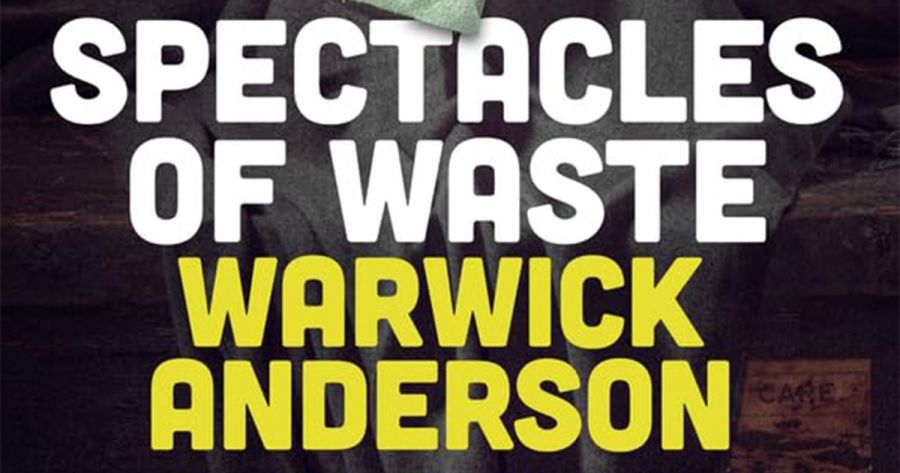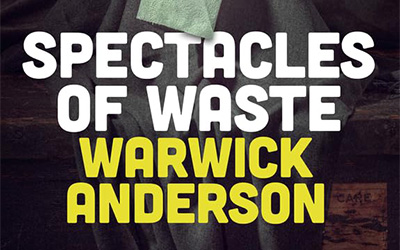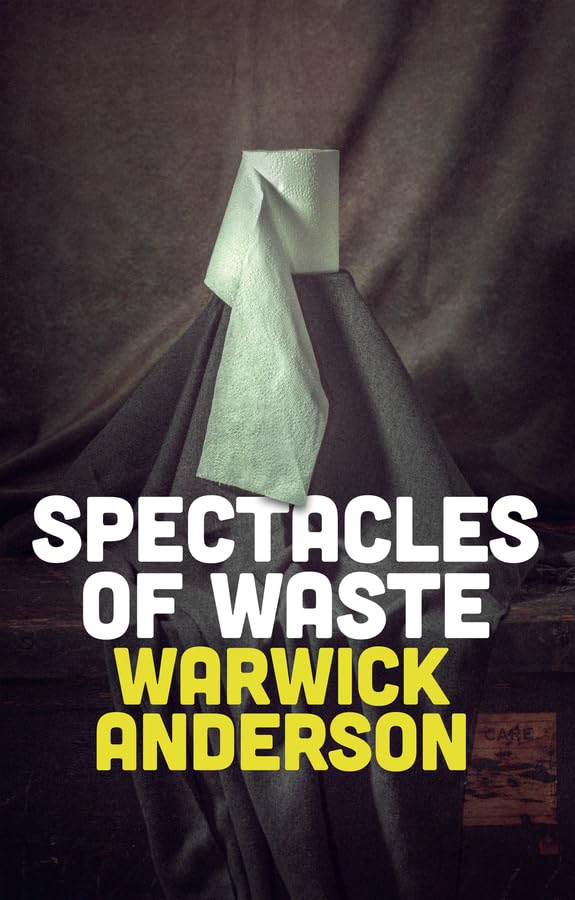
- Free Article: No
- Review Article: Yes
- Article Title: The excrementitious subject
- Article Subtitle: Examining the unspeakable
- Online Only: No
- Custom Highlight Text:
In a survey on humanity’s most vital inventions, the British public ranked the flush toilet above mobile phones, beds, shoes, and the combustion engine. Who can blame them? In a well-sewered world, we are protected from many of the infectious diseases that contributed to making our unplumbed ancestors’ lives nasty, brutish, and short. Cholera, hepatitis, polio, and the diarrhoeal diseases that continue to kill more people globally than acts of violence all implicate faecal transmission. It seems only rational to dispatch our excrement as quickly as possible in a cleansing torrent of water.
- Featured Image (400px * 250px):

- Alt Tag (Featured Image): Nick Haslam reviews ‘Spectacles of Waste’ by Warwick Anderson
- Book 1 Title: Spectacles of Waste
- Book 1 Biblio: Polity, £14.99 pb, 184 pp
- Book 1 Cover Small (400 x 600):

- Book 1 Cover (800 x 1200):

- Book 1 Readings Link: https://www.readings.com.au/product/9781509557417/spectacles-of-waste--warwick-anderson--2024--9781509557417#rac:jokjjzr6ly9m
- Book 2 Cover Small (400 x 600):

- Book 2 Cover (800 x 1200):

Spectacles of Waste, the latest book by Warwick Anderson, a distinguished Australian historian of medicine, argues that rationality is but a small part of shit’s story. Our attitudes towards excrement are permeated by anxieties and aversions that agitate the apparently cool and objective world of medical science. In their efforts to control disease and promote hygiene, biomedical authorities reveal profoundly irrational preoccupations. What they try to repress has a way of returning.
Consider the case of Covid-19. In a chapter on the ‘sewage panopticon’ that nods to Michel Foucault’s work on social control through surveillance, Anderson describes the efforts of epidemiologists to track coronavirus infections by sampling urban wastewater. In principle, finding fragments of the virus might help to identify new infections and variants, but Anderson argues that testing programs were rarely instrumental in shaping the public health response to the pandemic. The excessive enthusiasm for this low-resolution form of monitoring reflected instead what Aldous Huxley called ‘an obsessive preoccupation with the visceral and excrementitious subject’. Anderson sees behind this enthusiasm a ‘datafication of shit’ that attempts to neutralise and create mental distance from hazards that threaten hygienic modernity.
The same anxious preoccupation masquerading as disinterested research underlies the recent interest in the gut microbiome, or ‘shit-in-the-making’ as Anderson calls it. ‘The intrigue of the microbiome … still exceeds any practical justification’, and has yielded few validated therapies or precisely specified disease processes. The drive to explore it has more to do with a desire to impose order on faecal disorder, ‘to signify away whatever matter out of place we cannot remove or extinguish’. Anderson sees historical continuities between contemporary hype around the microbiome and early twentieth-century concerns about auto-intoxication, the fear that excrement poisons us from within. Echoes of these concerns can be heard in recent enthusiasm for faecal transplants as a way to ‘re-wild’ our modern, constipation-prone intestines. The summary dismissal of contemporary microbiome science seems premature and speculations on its anxiety-allaying motivation hard to credit, but Anderson’s analysis deftly shows how ideas about human waste bring to the surface themes of civilisation and modernity against nature and the primitive.
Anderson is most in his element when writing about colonial medicine. Highlighting research conducted in the Philippines, he shows how American colonial administrators and medical experts served as hygiene evangelists aspiring to discipline the locals – viewed as ‘promiscuous defecators’ – into more controlled and sanitary toilet habits. Undoubtedly, this work rested on ideas of racial hierarchy and an opposition of civilised whiteness to primitive nature, but it is less obvious how much the ‘latrine craze’ represented something beyond a proportionate, modernising response to disease. Anderson acknowledges that it ‘did much to reduce rates of diarrhea and dysentery among those colon-ized’ but argues that the obsessiveness of the colonisers and their passionate concern for matters faecal indicate that more was at stake than a simple exercise in evidence-based harm reduction.
The cultural significance of shit extends well beyond efforts to spread the gospel of hygiene around the globe. Anderson explores its intrusions into the literature of FranÇois Rabelais, Jonathan Swift, and James Joyce, and its prominent place in psychoanalysis, paying special attention to analysts who attempted to understand the dynamics of non-Western minds and bodies. He celebrates the recent ‘excremental turn’ in anthropology and explores the incorporation of shit in art. Often, he suggests, attempts to be transgressive merely promote a primitivist counter-narrative that leaves the opposition between waste and civility unquestioned. ‘Time and again,’ he concludes, ‘we take recourse to structural dichotomies, such as purity and danger, modern and primitive, culture and nature, to organize ourselves against disorderly shit.’
Spectacles of Waste makes no attempt to compromise its scholarliness in the hope of reaching a wider audience. For the general reader it will be an education not only in human waste but also in the stylistic mannerisms of the academic humanities. The genre can seem foreign and obscure even to those of us living in different turrets of the ivory tower. Moments of insight and memorable turns of phrase compete with ponderous expressions and hyphen-riddled coinages. What exactly are ‘imagined scatologics of postcolonial governance’ and should we welcome or run screaming from a ‘procto-ontology’? Occasional sentences give Judith Butler a run for her money:
The attribution of inherent power to excremental stuff, its fetishization, might disguise or transubstantiate the political economies of colonial dominance and global capitalism, thus objectifying any surplus value squeezed out in the latrine.
Despite dropping these occasional stones in the reader’s path, Anderson’s writing is lively and full of wit and invention. Spectacles of Waste is a riot of wordplay and pun-wrangling, although whether turdification, latrinoscene, and merdocracy will enter the lexicon remains to be seen.
Anderson’s learning is expansive, equally masterful in the scientific, historical, literary, and social-theoretical aspects of his topic, and his book moves fluently over a wide terrain. It returns repeatedly to matters of race and colonialism, paying relatively scant attention to issues of gender and sexuality that might be the focus of a more psychological work. It does not quite deliver on Anderson’s ambitious goal of showing ‘that shit has become one of the great spectacles of modern life, perhaps the most pervasive and compelling spectacle of all’, but it makes a grand attempt. Swift writes in Gulliver’s Travels that ‘men are never so serious, thoughtful, and intent than when they are at stool’. Anderson is not always entirely serious, but his book is an absorb-ing examination of the unspeakable.


Comments powered by CComment